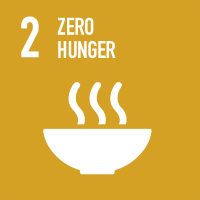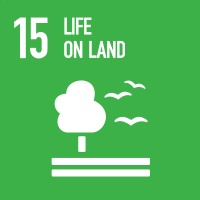Studying at the University of Verona
Here you can find information on the organisational aspects of the Programme, lecture timetables, learning activities and useful contact details for your time at the University, from enrolment to graduation.
Study Plan
This information is intended exclusively for students already enrolled in this course.If you are a new student interested in enrolling, you can find information about the course of study on the course page:
Laurea magistrale in Biotecnologie agro-alimentari - Enrollment from 2025/2026The Study Plan includes all modules, teaching and learning activities that each student will need to undertake during their time at the University.
Please select your Study Plan based on your enrollment year.
1° Year
| Modules | Credits | TAF | SSD |
|---|
Due insegnamenti a scelta2° Year It will be activated in the A.Y. 2025/2026
| Modules | Credits | TAF | SSD |
|---|
3 modules among the following| Modules | Credits | TAF | SSD |
|---|
Due insegnamenti a scelta| Modules | Credits | TAF | SSD |
|---|
3 modules among the followingLegend | Type of training activity (TTA)
TAF (Type of Educational Activity) All courses and activities are classified into different types of educational activities, indicated by a letter.
Omics sciences - Module I (2024/2025)
Teaching code
4S003719
Credits
6
Coordinator
Not yet assigned
Language
Italian
Scientific Disciplinary Sector (SSD)
AGR/07 - AGRICULTURAL GENETICS
Courses Single
Authorized
The teaching is organized as follows:
Metabolomica teoria
Trascrittomica laboratorio
Trascrittomica teoria
Program
Transcriptome composition and control (short summary). Transcriptomics aims.
Methods for RNA extraction and RNA quality assessment for transcriptomics, basics in reverse transcription and methods for single gene expression analysis (summary)
Genome wide expression analysis methods: basics and experimental design
PCR and profiles based transcriptomic analysis.
Hybridization based transcriptomic analysis: macroarray, microarray production, different microarray based oligo platforms, microarray design and controls, different protocols for probe preparation and labelling, hybridization protocols, image acquisition, procedure for data analysis, data mining.
Sequencing based transcriptomic analysis: EST libraries, SAGE, MPSS, RNA Seq, procedure for RNASeq library preparation, library quality assessment, library sequencing, procedure for RNASeq data analysis, data mining and examples of specific applications, co-expression network analysis, sequencing based analysis of different RNAs, target enrichment in expression analysis, long reads sequencing based transcriptomics. Laser microdissection, single cell RNASeq, “spatial” transcriptomics and single molecule transcriptomic sequencing.
Papers discussion
------------------------
UL: Metabolomics theory
------------------------
The teaching program includes the presentation and discussion of the following topics:
- metabolomics and its “targeted” and “untargeted” approaches
- experimental design;
- metabolite extraction techniques;
- metabolite analysis techniques with particular emphasis on mass spectrometry;
- key elements necessary for data processing and production of the FQM (“Feature Quantification Matrix”);
- methods of statistical analysis of the data suitable for the experimental problem.
Didactic methods
Lessons will be in presence. Lessons will not be provided in other ways except limited to students who, due to Covid, cannot access the University upon presentation of the relative request on the appropriate form. In these cases, the teacher will provide additional teaching material in the form of recorded lessons
------------------------
UL: Metabolomics theory
------------------------
This module includes only frontal lessons to be followed in the classroom.
Attendance at the course is strongly recommended.
Learning assessment procedures
The exam will be oral aiming to ascertain the students’ knowledge on the topics of lectures and lab practices. Two third of the colloquium will be dedicated to test knowledge on topics treated in the theory part of the course. The exam will be same for both attending and non-attending students.
------------------------
UL: Metabolomics theory
------------------------
The assessment of learning outcomes involves a written multiple-choice test, lasting 1 hour. In some cases, the teacher reserves the right to assess the skills acquired through an oral test or simulation using the software used during the course. The exam method will be the same for attending students, non-attending students and Erasmus students. There are no intermediate tests.
Evaluation criteria
Learning of the theory topics
Capacity to apply the knowledge including technical aspects faced in the laboratory part
------------------------
UL: Metabolomics theory
------------------------
The evaluation criteria are the following: - level of learning and in-depth study of the subject; - ability to critically reason on the study carried out; - ability to solve a complex issue; - quality of presentation and use of specialized vocabulary (in the case of an oral exam). The grade will be expressed in thirtieths cum laude.
Exam language
ITALIANO




